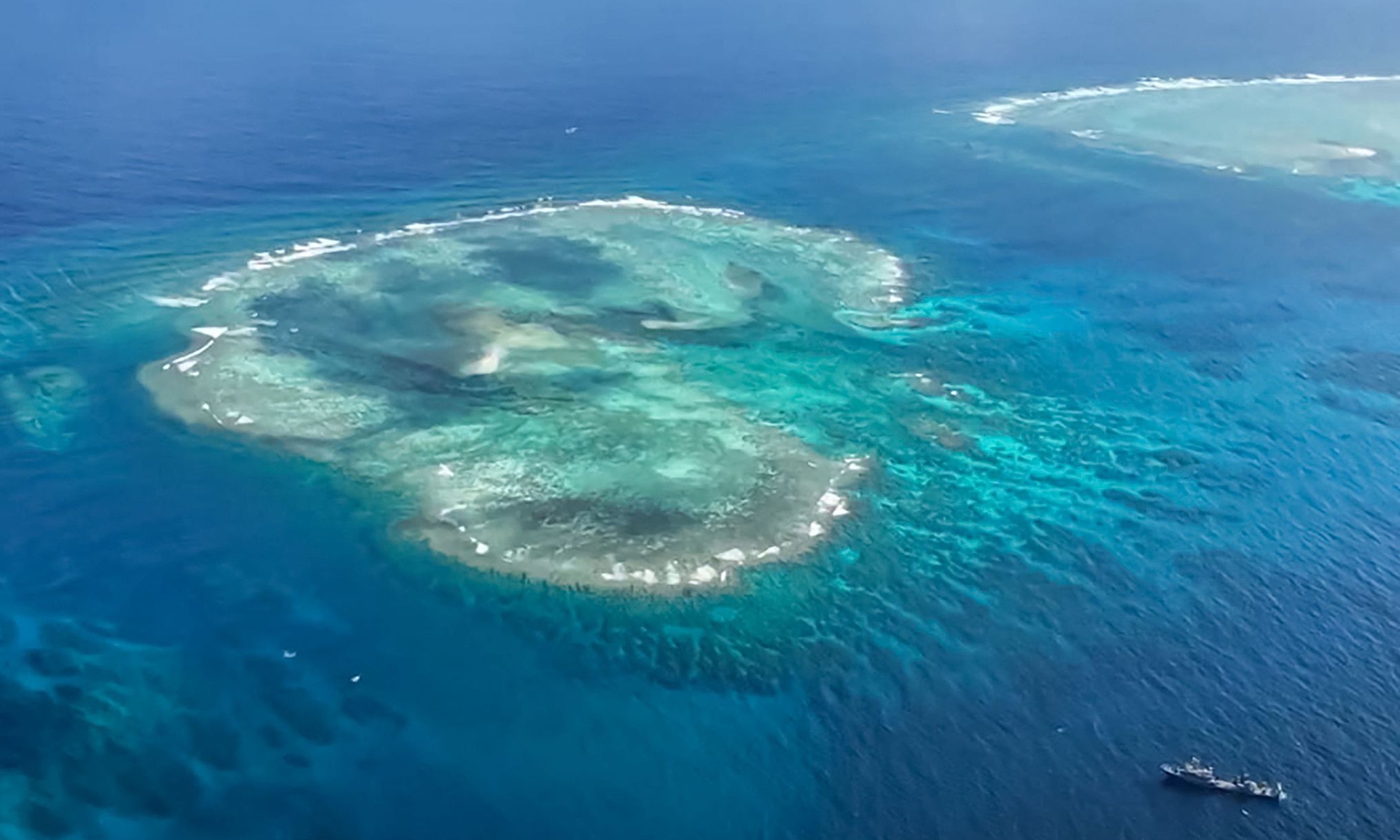
Photo:VCG
Global scholars and experts from China, Malaysia, the Philippines, Portugal, Russia, Singapore, the UK and other countries discussed the historical and legal basis for China's recovery of the Nansha Qundao in the South China Sea, and called for respect for history, at an international symposium held in Beijing on Saturday on the occasion of commemorating the 80th anniversary of the World Anti-Fascist War.
Wu Jilu, director of the Institute of Marine Development Strategy, China's Ministry of Natural Resources, said at the symposium that 2025 marks the 80th anniversary of the victory in the Chinese People's War of Resistance Against Japanese Aggression and the World Anti-Fascist War, as well as the 80th anniversary of the founding of the United Nations. Upholding the international order established after World War II, he said, is essential for lasting peace and stability, and respecting the territorial sovereignty of all countries is the core essence of safeguarding the post-war order.
China's recovery of sovereignty over the Xisha Qundao and the Nansha Qundao is an important part of the post-war order in the South China Sea and should be firmly safeguarded, said Wu.
At the symposium, some scholars demonstrated relevant historical documents, archives and maps to demonstrate that China has sufficient legal and historical evidence for its sovereignty over the Xisha Qundao and the Nansha Qundao. Through the research of foreign archives, some scholars pointed out that major countries at that time recognized China's sovereignty over the Xisha Qundao and the Nansha Qundao.
Other scholars emphasized that China's recovery of the South China Sea islands after World War II is an important part of the post-war international order constructed by international legal documents such as the Cairo Declaration and the Potsdam Proclamation.
The symposium focused mainly on two topics: "safeguarding the post-war order and territorial claims by neighboring countries" and "the history and law of China's recovery of the Nansha Qundao." Participating experts and scholars also contributed insights on the topics of "approaches to building a peaceful community in the South China Sea," "history, claims and the post-world war II order," "the historical and legal basis for China's recovery of the Nansha Qundao," and "China's development and management of the South China Sea islands since modern times," which re-presented the historical facts related to China's sovereignty over the South China Sea islands.
Anna Rosario Malindog-Uy, vice president for external affairs of the Asian Century Philippines Strategic Studies Institute, put forward several solutions at the symposium to address the current conflicts in the South China Sea, including functional cooperation and joint development. She told the Global Times that functional cooperation could involve joint fisheries management, the establishment of marine protected areas, shared scientific surveys, and the formulation of standardized search-and-rescue protocols.
Regarding joint development, Malindog-Uy suggested exploring energy or wind resources in overlapping sea areas while shelving disputes over territorial ownership

